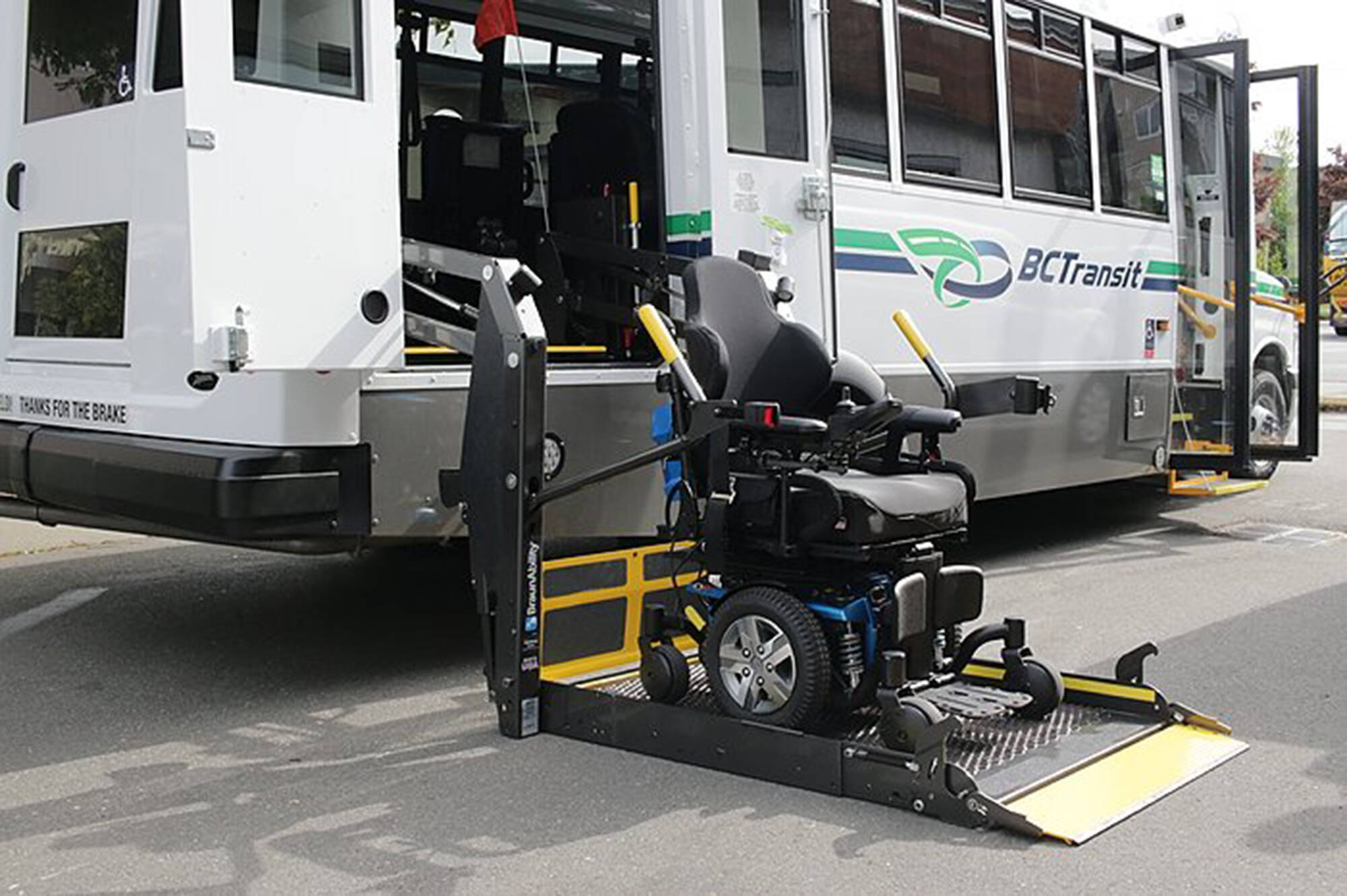Northwest B.C. residents hoping for better transport for elderly and disabled people got a rude awakening at a recent City of Terrace meeting, where they were told they’re unlikely to get improved service any time soon.
Lindsay Taylor, government relations manager for BC Transit, poured cold water on cries for help from seniors in explaining that the province is not likely to expand accessible transport this year or next, anywhere in B.C.
“We’ve had some internal discussions already with the province. That’s why we know we’re not likely to get expansion for 2023-24,” Taylor said in outlining better transit options the city could ask for.
Diana Penner, from the Skeena Valley Seniors Society and Yvonne Nielsen, who advocates for people living with disabilities, were quick to voice their disappointment.
“Where is the equity in our province with regard to communities that have services to their community members? Seniors are the most unheard population right now, the most invisible population,” said Penner.
“Just between Kitimat and Terrace the inequity is staggering.
“It’s not fair.”
Taylor said BC Transit has forecasted about 5,500 needed accessible trips this year in Terrace, for which riders with reduced mobility depend on a mix of regular busses and one specialized transport van called a handyDART.
The handyDART needs to be booked and when it’s not available, taxis are relied on to fill the gap.
“When we look at ridership, I was in Kitimat yesterday and their custom ridership is about 500 trips whereas… the Terrace transit service for custom is actually quite higher than that,” said Taylor in assessing the situation.
“When we’re comparing service to somewhere like Kitimat that has more HandyDART service, they’re about 3,500 rides a year and here we’re looking at about 5,500 rides a year.”
Nielsen added that she’s been unable to attend recreational activities in Terrace and area because the handyDART was already booked. Sometimes she can get to a place but can’t get back after service hours end.
“We need a second handyDART bus and I mean now,” said Nielsen in addressing council.
“That’s what you guys are here for is the quality of life of seniors and people with disabilities.”
In the unlikely event that the province comes up with the cash, Taylor said results wouldn’t come until the fall of 2024. The bus ordering process is about 18 months and would need to be done by the city in advance of being funded. In the meantime community-led initiatives would need to fill the gaps in service.
Ted Ramsey, who is Thornhill director on the Kitimat-Stikine regional district board and works with the Helping Hands non-profit group, pointed to inconsistencies between BC Transit’s assessment of needs in the region and what residents say.
Taylor said there had only been 49 missed ride appointments in Terrace and area last year, with only 14 of those not having been “negotiated” with users to ride at a different time.
She also said there have been no missed taxi appointments.
“I do hear some contradiction here from what I’m hearing in the public that the taxi guys cannot do trips for the folks that need it. In my understanding there are some pretty big gaps here,” said Ramsey.
City finance director Lori Greenlaw added that spending would need to be decided in the annual budget.
“BC Transit doesn’t necessarily come here and advise us on the service levels we want to provide. We know that we can’t afford to provide the levels of service that Kitimat does, their budget is twice the size of ours.
“It is ultimately up to council to determine what we can afford and what level of service we want to provide.”
If the city were to move forward in making a request to the province, BC Transit would check costing, sign an agreement and submit a service plan to the province around October or November.
The province does its next year budgeting between February and April, 2024.
Any expansion of services to Thornhill and the surrounding rural area would also need to include the regional district.
Penner added that transport service reviews are few and far between, while the people most affected by those assessments are often unable to participate.
“I believe the last one that I attended was in 2012, with a group of people in our community at that time who were struggling with transportation.
“That was very minimally attended because the people who needed to get there couldn’t get there because of the handyDART.”
The most recent review came amid the COVID-19 pandemic, Penner said, adding that it’s now being done virtually, which comes with a slew of new accessibility problems.
“How do you conduct a review that isn’t able to demonstrate the actual need in the community and then tell us that if we want to get another bus, we can put an application in June and we get to wait 18 more months?
“That’s not acceptable.”
READ MORE:Advocates call for better handyDART and taxi service
Do you have a comment about this story? email:
michael.willcock@terracestandard.com

